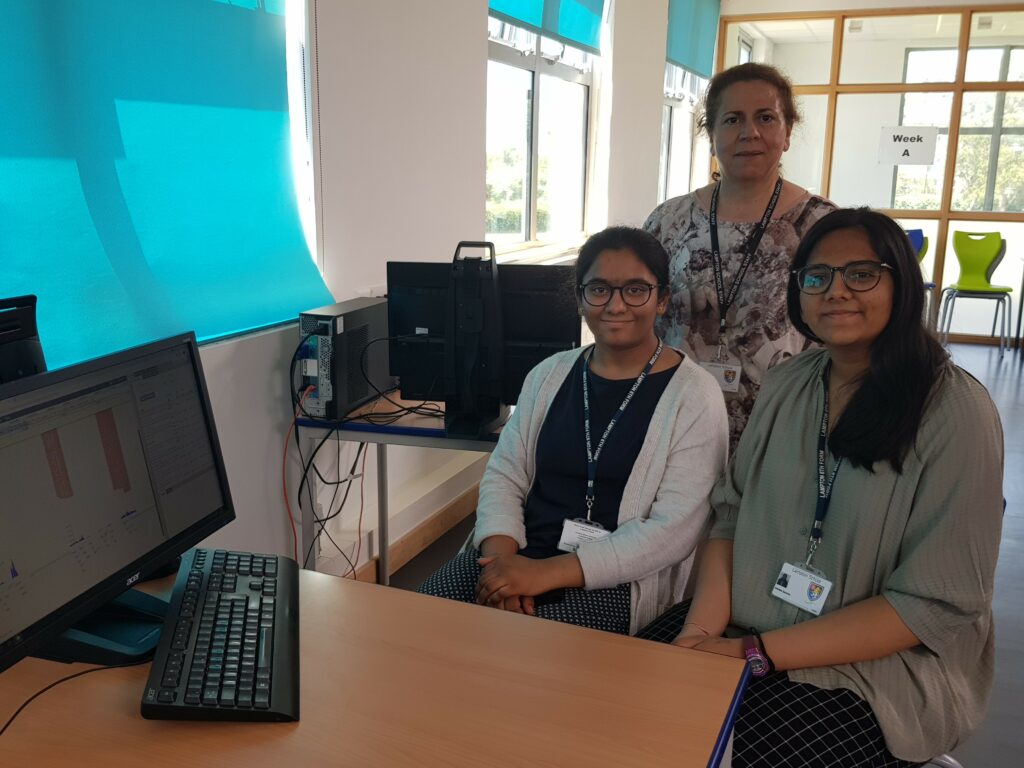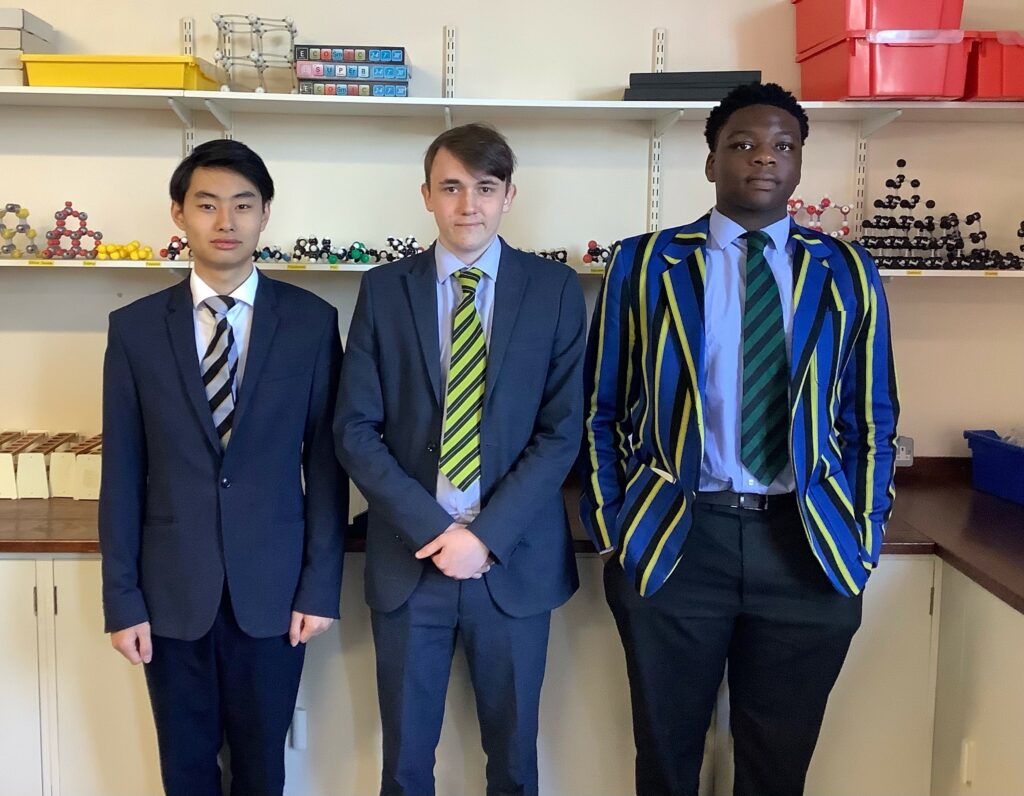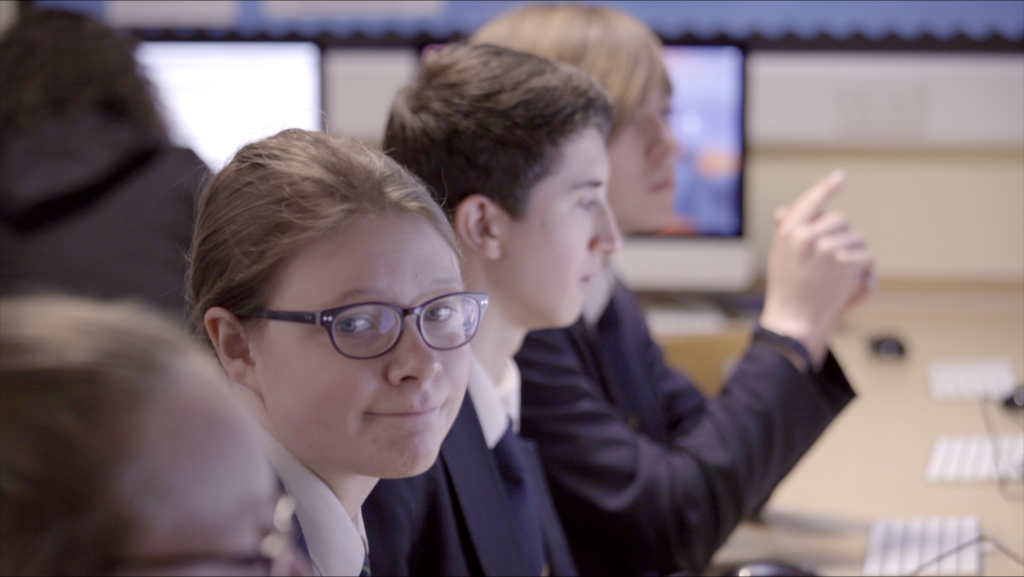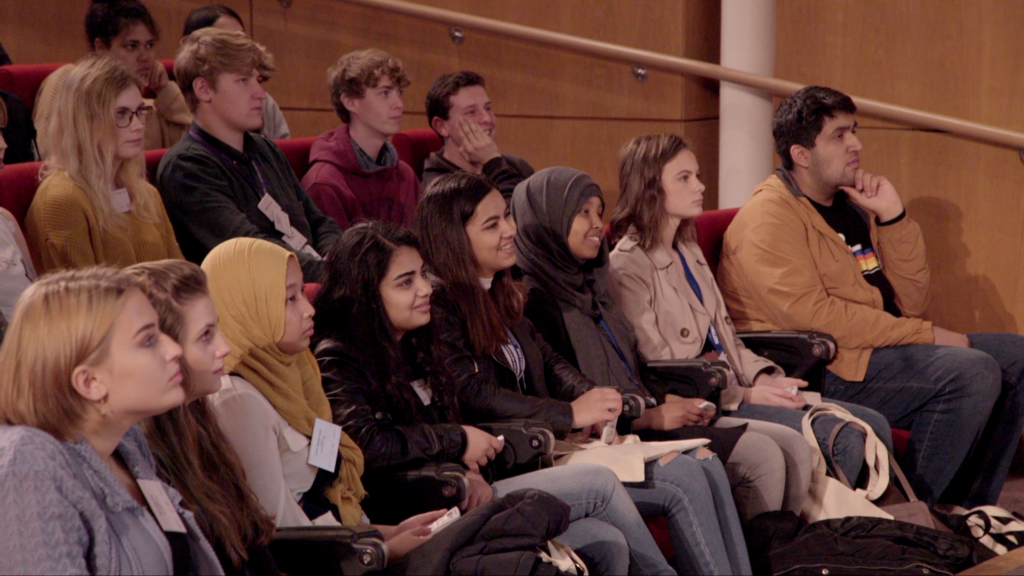
UK students decode parasite genome to help prevent childhood infection
Students from 50 UK schools have been helping scientists from the Sanger Institute annotate the genome of the human whipworm, Trichuris trichiura. Their efforts could support the development of a vaccine to prevent a neglected tropical disease linked to malnutrition and cognitive developmental problems in children.
The students are taking part in Genome Decoders, a ground-breaking project by the Institute for Research in Schools (IRIS) which allows young people to take part in a research effort to improve the health of their peers in distant countries. Since the project launched in 2017, secondary students and sixth formers have contributed more than 20,000 annotations of the genome, bringing scientists nearer completion of the annotation of the protein-coding gene set.
Jo Foster, Director for IRS, says projects like these illustrate the important role research in schools plays in students’ education.
“Research projects like Genome Decoders truly spark young people’s interest in STEM subjects by allowing them to become active learners. When given the opportunity, students prove that they can excel in science and, furthermore, they can contribute to scientific knowledge.”
Jo says the pandemic has opened the doors of research, including the Genome Decoders project, to more students.
“With lockdown and restrictions, many students did not have clubs and were not hanging out with friends so much, which gave them time to explore investigative learning through research at home and their feedback has been extremely positive.”
 Left to right: Lavanya and Advika with their tacher Razika from Lampton School contributed annotations of the human whipworm genome
Left to right: Lavanya and Advika with their tacher Razika from Lampton School contributed annotations of the human whipworm genomeLavanya Murki, year 12 student at Lampton School in Hounslow, a west London borough, says: “I feel very honoured to have been part of the genome project. This experience will remain unforgettable for me, as I’ve learnt so many new skills and I’ve also been able to help scientists investigating ways to fight this disease and improve the lives of many people. I am very grateful for IRIS giving us the opportunity to be a part of scientific research.”
Clara, age 17 and a Year 13 student at the Oxford High School who has been contributing annotations for the last three years, says:
“I’ve really enjoyed being part of Genome Decoders. I find it brilliant how what you learn in the classroom about DNA and genetics, has a real-life application in such a worthwhile project.”
 Student Genome Decoders from the The Oratory School Tony Dong Alex Farley and Tolulope Awoniyi
Student Genome Decoders from the The Oratory School Tony Dong Alex Farley and Tolulope AwoniyiTolulope Awoniyi, age 17 and a lower sixth form student at the Oratory School, took part in the project this year, despite lockdown and restrictions.
He says: “It’s a great reassurance to know everything we learn in our chemistry and biology classes isn’t being taught in vain. We get to see first-hand that scientists apply this knowledge each day to their research, and it is empowering that they have faith in us to aid in this research. It goes to show, you can make an impact on the world of science today regardless of your age.”
To be involved in such an important collaborative project is incredibly exciting and shows that everyone can make an impact in science.
The human whipworm – Trichuris trichiura – is a parasitic worm that infects approximately 500 million people globally, mainly children in Asia, Africa and South America. It causes the neglected tropical disease Trichuriasis, which leads to diarrhoea, malnourishment and developmental problems. This disease has a chronic impact on the communities affected, but there is no current vaccine against whipworm, and existing treatments do not work well and are too expensive for many areas.
By decoding the entire genome of this whipworm species, which will be one of the very few parasitic worm genomes to be manually annotated in such depth, these young students could help scientists find new ways of treating and preventing Trichuriasis.
Dr Faye Rodgers, Principle Bioinformatician at the Wellcome Sanger Institute, says, “It’s great to see the progress the students involved in this project are making and it’s promising that so many UK teens are committed to helping decode the genome of this parasite. Producing an annotated genome could help reveal a new way to target this neglected tropical parasite, and in the long run potentially reduce the number of children that suffer from it. To be involved in such an important collaborative project is incredibly exciting and shows that everyone can make an impact in science.”
 Maria Sellers is one of IRIS lead genome annotators.
Maria Sellers is one of IRIS lead genome annotators.Maria Sellers, aged 18, joined Genome Decoders in Year 10, after encouragement from her teacher Mrs Hampson. She contributed the greatest number of annotations in the country.
Maria, who is at her last year at from Joyce Frankland Academy in Newport, says: I really enjoyed working with IRIS. Not many people my age have the opportunity to work alongside scientists, and even fewer are able to claim that they have participated in an effort to create a vaccine for a neglected tropical disease. I have learnt not just about genetics, but about their practical application in combatting disease.”
“The project inspired me to research further into genetics which will be a big part of my university course. It taught me what to expect after university, working as a researcher.”
Maria plans to attend university in September of 2021 to study zoology.
 Students at the launch of the Genome Decoders project at the Wellcome Genome Campus
Students at the launch of the Genome Decoders project at the Wellcome Genome CampusCaryn Harward, head of science at the Oratory School, found the project a useful way to introduce her students into real research.
“IRIS provides fantastic opportunities for students to get involved in authentic science research and to experience the realities of working in scientific fields – the highs and low, frustrations and successes. It takes science out of the classroom and sets it in context, extending understanding beyond the curriculum while developing investigative and communication skills,” says Caryn.
Teachers say the project offered them an opportunity to learn too.
Paul Weeks, biology teacher at Oxford High School, says: “Being involved in the Whipworm Genome Project has been one of the most exciting and rewarding projects in my teaching career. The level of interest and engagement from the students has been wonderful to see and it has also been an extremely satisfying learning curve for myself, opening up all kinds of possibilities for teaching genetics and proteomics in school. Just brilliant.”
Razika Berboucha, physics technician at the Lampton School in Hounslow, a west London borough, says: “Thank you to the Institute of Research in Schools (IRIS) who make scientific research accessible to school students. I am very pleased to have brought the project to the students. Not only have I learned how to curate genes, but I also shared the knowledge with the students as well. Over the four years of our participation, I feel I gave students an opportunity to be part of something very important by helping researchers to create a vaccine against the whipworm.”